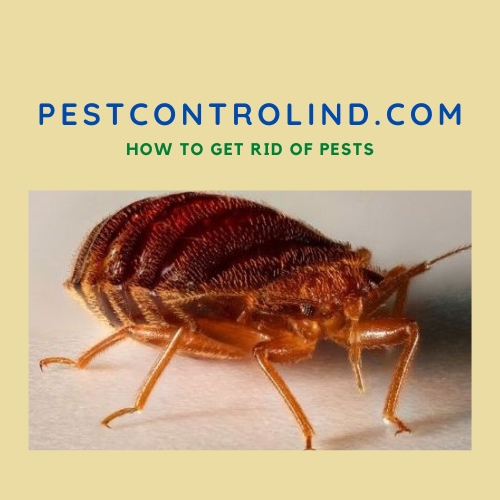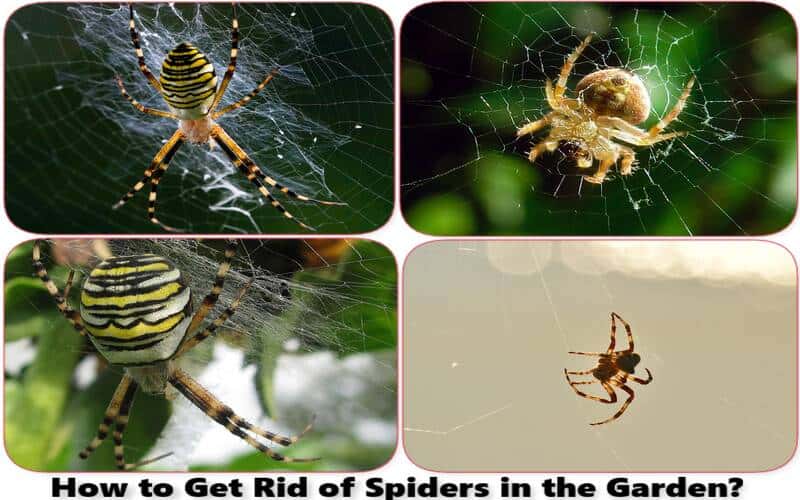How to get rid of spiders in the garden? Are they dangerous? What are the right repellents to keep them out of the garden? What precautions should be taken to keep them out of your home?
Here is a complete article that answers these questions as briefly as possible.
I. Why do spiders infest a garden?
Several things attract spiders in the garden. The most important is their attraction to insects.
Also, white light outdoors strongly attracts spiders.
Flowerbeds and plants are also known to attract spiders because they find midges and bees to feed on.
If you have crickets feeding on plant leaves, you may attract larger spiders.
If you have standing water in your garden or if it is constantly wet, you will have tons of mosquitoes, and spiders really like mosquitoes.
Spiders also like shade, as well as fruit because it attracts insects like flies.
They take advantage of this by stretching their webs to catch these insects, which they will hurry to put in reserve for the hungry days.
II. Are spiders dangerous?
Spiders with venom use it to hunt other insects, not to defend themselves.
Those commonly found in homes rarely bite people.
Instead, they tend to flee from the presence of people. When they do bite, the bites are not dangerous.
Most of the time, when they do bite, it is because the spider accidentally gets caught between a person’s skin and another object (such as sheets, clothes, or shoes) or when people try to catch them with their bare hands.
Some people may develop symptoms of allergies to spiders. However, this is rare and varies from person to person.
Reactions to bites are not associated with the venom itself, but with allergenic proteins in the
spider’s saliva.
Allergic reactions can also be caused by inhaling hairs, scales, or other small parts of the spider.
III. How to get rid of spiders in the garden?
To eliminate the presence of spiders in the garden, you have several natural solutions at your disposal, including:
1. white vinegar
White vinegar is a good weapon against spiders. It contains acetic acid, which is toxic and deadly to spiders.
A diluted vinegar solution will help you kill spiders in your garden and prevent further invasions.
2. alum powder
Alum powder you can easily create your own natural repellent with. Dissolve a few grams of alum powder in half a liter of warm water.
Mix and pour into a spray bottle.
Spray the areas where spiders are most likely to spend their time.
3. diatomaceous earth
Silica soil not only repels insects but also kills them.
In your garden, you should spread it all around the plants and the result will be immediate.
It is important to protect the diatomaceous earth from water otherwise it will not be effective. You can use it anywhere except on vertical surfaces.
Diatomaceous earth is effective as long as it stays in place.
Although diatomaceous earth is not toxic, it can cause irritation in humans if inhaled.
It is therefore important to take certain precautions when using it. Putting a light mask on one’s face will not be in vain if the person is susceptible.
IV. Some precautions to avoid a spider infestation in your garden
The precautions are quite simple to put in place once you understand the reasons for the spider infestation.
For example, you can start by reducing or changing the lighting in your garden to lights that do not attract them.
You also need to maintain your garden so that it doesn’t encourage the flying insects that spiders love. This requires simple gestures such as:
- Weeding to aerate the garden and reduce shady areas
- The layout of pipes to avoid stagnant water
- The evacuation of garbage and especially fruit residues
V. How to scare them away: natural repellents
Here is a non-exhaustive list of natural repellents against the presence of spiders in your garden.
# Repel spiders with essential oils
Some essential oils such as lavender or rose geranium are effective natural repellents against spider infestation in particular, and insects in general.
# Garlic to get rid of spiders
You can make up a natural garlic solution to repel spiders in your garden.
You can mix it with almond oil, liquid soap, baking soda, and water to make a solution to spray on your garden plants.
# Cloves
You can stick cloves into an orange or lemon and place them on the windowsill or somewhere in your garden.
This is an old-fashioned trick that gets rid of many insects and gives off a pleasant scent.
# Scented plants
Since spiders feed on many insects, you can use scented plants to scare them away.
# Nettle
Nettle is also a natural insect repellent. You can use it in infusion or maceration to make an insecticide that you will spray on your plants.
# Grapefruit seeds
Grapefruit seeds are very popular with gardeners because of their antimicrobial properties.
They are often used as natural repellents mainly to repel the presence of small insects on plants, which spiders are fond of.
For proper use, simply put water in a spray bottle, dilute the grapefruit extracts and spray the solution on your plants.
V. How to treat a spider bite?
If a spider bites you, you should:
- Clean the area with mild soap and water to reduce the risk of infection.
- Avoid physical activity, as this can speed up the spread of venom in the body.
It’s a good idea to contact a doctor if:
- You believe a venomous spider has bitten you.
- Symptoms are severe, persist or worsen.
- There are signs of infection or neurological symptoms.
- There are changes in heart rate, blood pressure, or breathing.
If possible, note what the spider looks like. This can help a doctor understand the nature of the bite and decide the best treatment.
Symptoms of non-hazardous spider bites usually go away on their own.
If necessary, use anti-inflammatory medications, such as ibuprofen, to relieve the pain.
However, some home remedies can help reduce discomfort. For example, you can put some ice on the affected area.
If blisters develop, ask a health care professional for an antibiotic ointment.
However, if there is more than a red bump, it could indicate a venomous spider bite.
If there are symptoms other than a red bump in the bite area, you should seek medical attention.
Useful Links:
All spiders (arachnid) are predators
Spiders (order Araneae) are air-breathing arthropods that have eight legs

